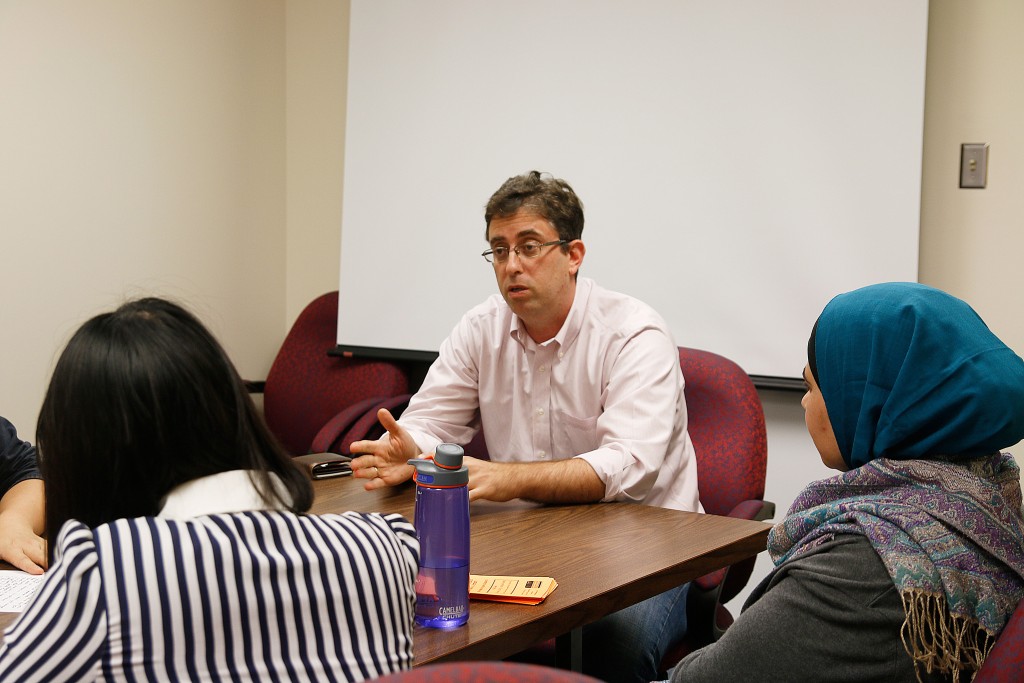
Navigating the job market and finding success in the workforce is hard enough for any recent graduate; when that student is an international student, the obstacles become greater.
International students from Jordan, China and Turkey gathered in Glenn G. Bartle Library South on Wednesday afternoon to hear financier Alon Eckhaus discuss his journey from an immigrant to a successful Wall Street businessman in “Success on Wall Street as a non-U.S. Citizen.” The event was sponsored by International Students and Scholar Services.
Eckhaus is the senior director of Oppenheimer & Co., an investment and management firm in New York City, where he meets clients and helps them manage their portfolios and stocks. Eckhaus and his two partners also own and operate 20 properties in Downtown Binghamton, serving 180 students in locations like 6 Riverside and 74 Front St. He encouraged students to be confident and meet different types of people through stories of his experiences as a non-U.S. citizen.
At 30 years old, Eckhaus immigrated to the U.S. from Israel in 2006 with his wife with hopes of working on Wall Street. While living in a basement in Brooklyn, he noticed that many Americans tend to associate themselves with people of the same background. He said that this tendency prevents people from meeting and networking with people from other backgrounds.
The first few months were rough, Eckhaus said, as he did not make much money. After having already finished all of his schooling in Israel, he spent eight months studying for the broker test and then went for an interview at Oppenheimer & Co. Business soon picked up, and he moved to his current home in Marlboro, New Jersey. He attributed his success to his willingness to work hard by teaching himself English, building confidence and embracing the culture rather than fighting it.
“I became very successful not because I was the smartest person in the room, but because I didn’t give up,” Eckhaus said.
He said he wanted to encourage international students to view their status as non-U.S. citizens as an advantage in having different perspectives that Americans may not have.
Abdullah Omer Uysal, a senior majoring in political science, said he benefited from the talk.
“It is good to hear from someone who came from a similar background who is from Wall Street,” Uysal said. “He also gave me hope that I can use confidence as a means of becoming successful.”
Though Wall Street is competitive, companies care more about character than credentials, Eckhaus said. He stressed that the most important part of a job interview was convincing employers that he was the right fit for their team.
“The reason I survived was because I didn’t have a choice,” Eckhaus said. “We will either be successful here or we go back to home. And we don’t want to go back because we didn’t leave everything there just to [go back].”
He said that the ultimate lesson is to always be honest and to take pride in one’s socioeconomic status. He compared some of his success in business to relationships, by stating that optimism and ambition go a longer way than looks and background.
“It doesn’t matter if it’s a date or finding a job, the process is the same: go after what you want,” Eckhaus said.
Suleyman Sipleme, a senior majoring in political science, said that he felt very satisfied with Eckhaus’s advice on being successful on Wall Street.
“I don’t have the courage to apply for jobs in Wall Street,” Sipleme explained. “He was very encouraging when he shared his experiences with us.”


